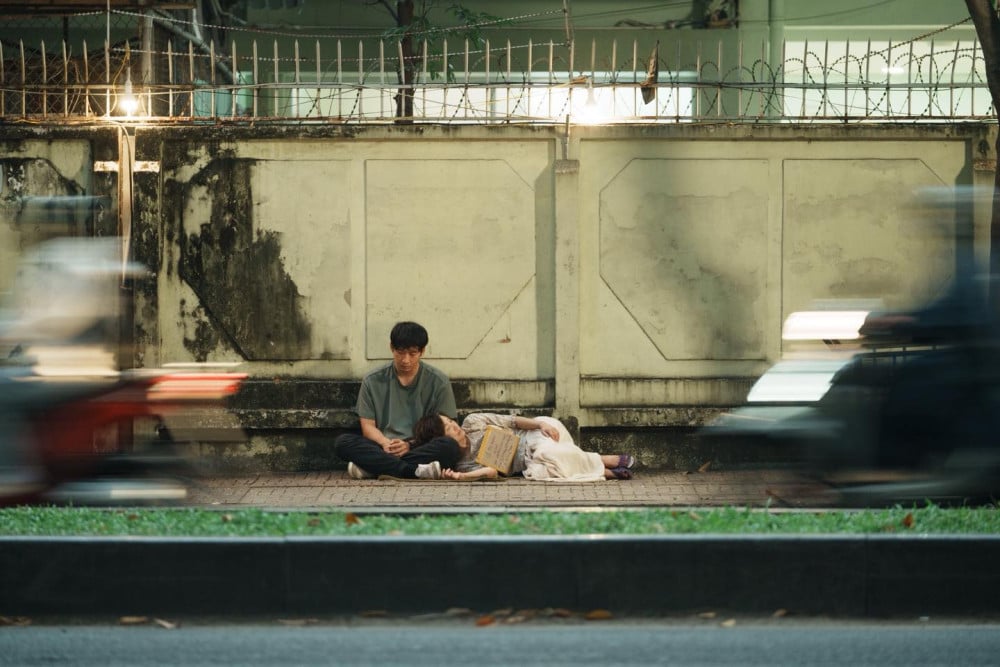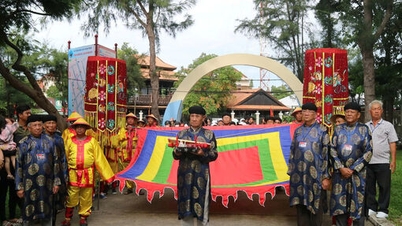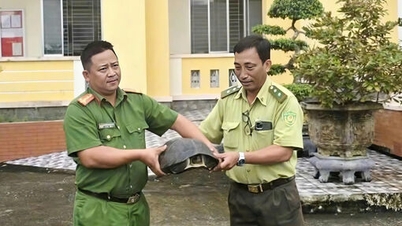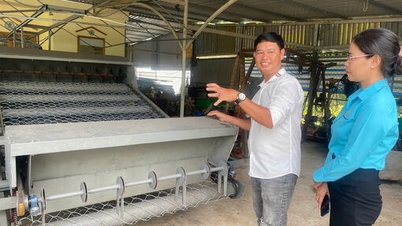Taking the mother's Alzheimer's disease as the center of the tragedy, the film deeply depicts the character's emotions and creates sympathy in the audience (Photo: Internet)
Without drama or fuss, "Bringing Mom Away" touches the audience's heart with a very real story. The character Hoan (Tuan Tran), a sidewalk barber, both earns a living and bears the sole responsibility of taking care of his mother Hanh (Hong Dao) - a woman who is gradually losing her memory due to Alzheimer's.
The disease turned her into a “grown-up child”: sometimes naive, sometimes forgetting her own children, depending on others for all her activities. For Hoan, those were endless days of sacrifice, worry and many times of helplessness.
In a moment of desperation, Hoan decided to take his mother to Korea, sending her to his brother, whom he had never met, an act that seemed like “abandoning his mother”. But that journey opened up many layers of memories, many invisible ties in the family, leaving behind a silent question: Do we truly understand and appreciate our parents?
In real life, Alzheimer’s disease is just as cruel as in the movies. Patients gradually lose their memories, the ability to care for themselves, and even lose the ability to recognize their own relatives. Every day, they seem to drift away from what they have been attached to all their lives. And that burden falls on the family, especially the children – both a responsibility and a test of patience and love.
Many families face the same situation as Hoan: Continue to care for their children or let go because of economic pressure, exhaustion, or simply because they lack patience. When their parents’ memories fade, will their children’s love be deep enough to replace the lost memories?
In the film, there is a scene where the doctor advises Hoan to pay more attention to and take care of his mother. Hoan chokes up and asks: “Have you ever cared for someone with Alzheimer’s?” – a question that sounds helpless, but reflects the feelings of many people involved. Because caring for Alzheimer’s patients is not just a duty, but a difficult journey, where patience is often worn away day by day.
With her delicate acting, Hong Dao portrayed the image of a mother who is both weak and warm; while Tuan Tran showed maturity in the role of a son torn between responsibility and dream. The ending of the film may not be perfect for all audiences, but it clarified the transformation journey in Hoan: from despair to finding happiness in that very sacrifice.
"Mang Me Di Bo" ends, but the echo remains: A gentle yet profound reminder. The elderly, especially those with Alzheimer's disease, need nothing more than love, listening and patience. And sometimes, when they forget us, we must remember them all the more./.
Tran Thoa
Source: https://baolongan.vn/-mang-me-di-bo-khi-dien-anh-cham-den-noi-dau-alzheimer-a201269.html




![[Photo] Prime Minister Pham Minh Chinh chaired a meeting of the Steering Committee on the arrangement of public service units under ministries, branches and localities.](https://vphoto.vietnam.vn/thumb/1200x675/vietnam/resource/IMAGE/2025/10/06/1759767137532_dsc-8743-jpg.webp)



![[Photo] Prime Minister Pham Minh Chinh chairs a meeting of the Government Standing Committee to remove obstacles for projects.](https://vphoto.vietnam.vn/thumb/1200x675/vietnam/resource/IMAGE/2025/10/06/1759768638313_dsc-9023-jpg.webp)





























































































Comment (0)